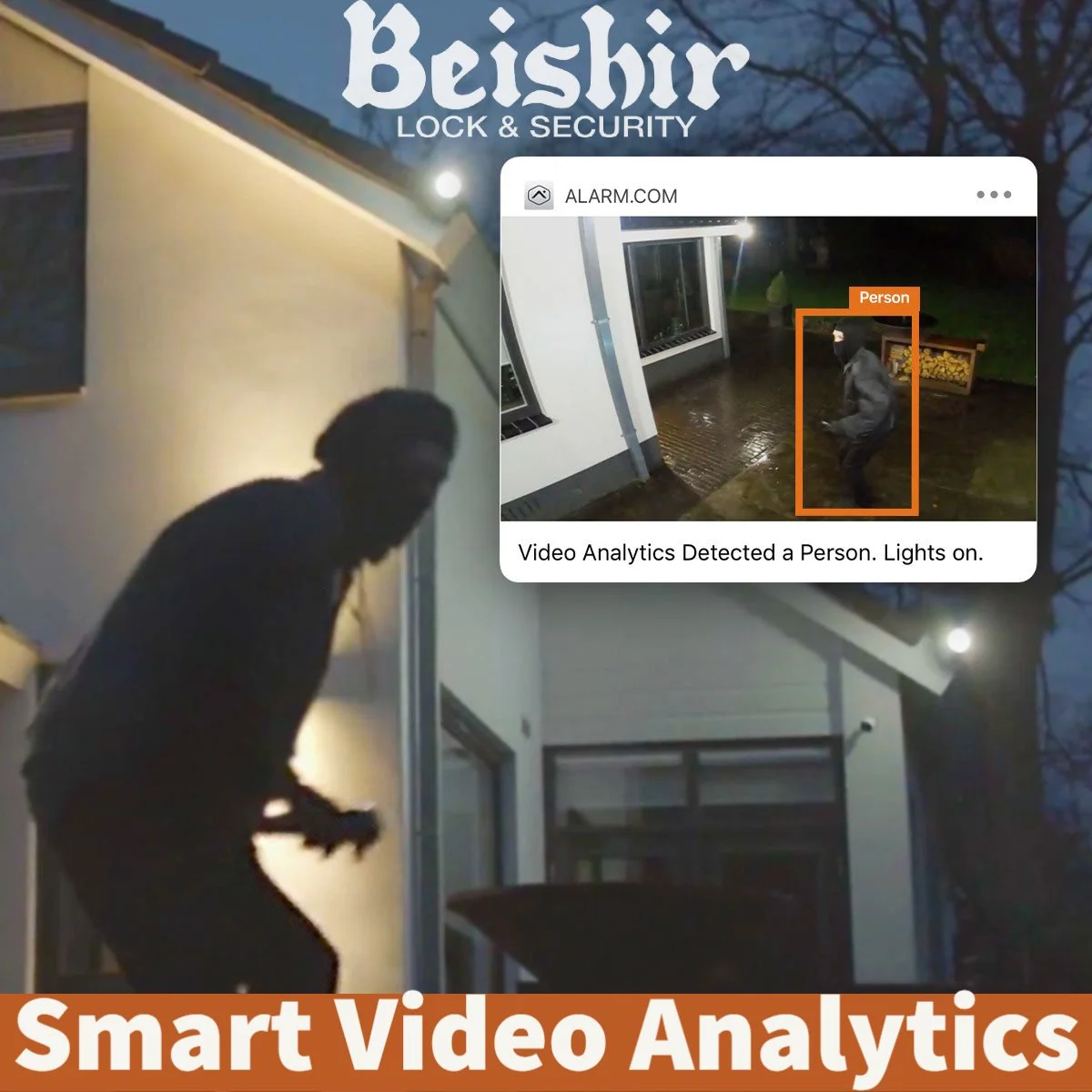Three Ways to Improve Your Home Security
You can’t put a price on the safety and security of your home and family. That’s why so many homeowners chose to protect their assets, valuables, and the people who matter most to them with a reliable home security system. Here are the top 3 ways we recommend improving your home security.
Invest in home security
Protected by Beishir Yard Sign
Home security systems are an investment, and with any investment it's wise to do your research before you buy. Is it really worth it? The answer to that is yes, as long as you have the right system and products in place. Take a look at why it's smart to invest in a home security system and how to make sure you get the most out of your investment.
Protect your family from burglars and intruders. According to the FBI, more than 1.4 million burglaries occur in the United States each year, and another report found that 27% of the time, someone is home during the break-in. A home security system is the best way to keep your people and property protected.
Protect your family from fires and carbon monoxide. A complete security system goes beyond just break-ins and includes a network of smoke and carbon monoxide detectors to alert you in the event of a fire and deadly gas, so you can get to safety as quickly as possible. Carbon monoxide is an odorless and tasteless deadly threat. Proper detectors monitor for these deadly threats.
Day and night monitoring. When your security system includes alarm monitoring, your home is watched over 24/7.
Increase your home's value. A security system can help increase the value in your home if you decide to sell. A recent survey of people shopping for a home found that wireless security systems and security cameras topped the list of tech must-haves.
You can also save on homeowner's insurance. Because security systems are an effective deterrent against property crime, many insurance companies provide a discount on homeowner's insurance policies if you have a system.
You may be able to write it off on your taxes. If you work from home or operate a small home business, you may be able to write off the alarm system expense for that portion of your home on your income taxes.
Save on energy bills. When your security system is part of a complete home automation system, you can also save money on your energy bills.
change the locks
Changing the Locks
One of the best ways to ensure your home is secure is by changing the locks when you move in. You never know who else may have had access to the property before you moved in, which is why it's important to get new keys and locks installed as soon as possible. Our team of professional locksmiths can provide lock change services quickly and efficiently so you can start feeling safe in your new home right away.
Install security cameras
In today's world, home security is more important than ever before. And one of the best ways to protect your home is to install security cameras. But before you start shopping for cameras, there are a few things you need to know.
Not all security cameras are created equal. When you're shopping for a camera, you need to keep in mind what your specific needs are. Do you need indoor or outdoor coverage? Do you need night vision?
Traditional Security Cameras
Traditional security cameras are the basic option. They're typically less expensive, and they're pretty easy to set up. All you need to do is point the camera in the direction you want it to be and plug it in
Smart Security Cameras
Smart security cameras are the newer, more advanced option. Many smart cameras come with the ability to tell the difference between an animal, family member and a stranger. They also often include two-way audio, so you can listen in and talk to whoever is in front of the camera. You can also control most smart cameras remotely, so you can check in on your home even when you're not there.
Wireless or Wired?
Wired cameras are typically more reliable because there's no risk of the signal being lost or interrupted. A wired security camera will also need to be connected to a power source, so you'll need to consider it when choosing a location for the camera. And if someone cuts power to your house and your security system doesn't have backup power, your cameras will stop working.
Wireless security cameras are much easier to install because you don't have to worry about running wires through your walls. They're also more versatile in terms of placement because you can put them anywhere that has a Wi-Fi connection. Most wireless security cameras are also battery-powered or solar-powered, so you don't have to worry about them being plugged in.
Indoor/Outdoor?
If you only need to monitor activity inside your home, then an indoor camera will suffice. However, if you want to see what's happening outside your home, you'll need an outdoor camera. Outdoor cameras are designed to withstand the elements, so they're typically weatherproof and can be placed almost anywhere. However, they can be a bit more expensive than indoor cameras.
Storage Options
When it comes to storage, you have two main options: cloud storage or local storage.
Cloud Storage
Cloud storage is an excellent option if you want to be able to access your footage from anywhere. Most cloud storage plans are subscription-based, so you'll need to pay a monthly fee. However, cloud storage is typically more secure because it's off-site. So even if your camera is stolen, your footage will be safe.
Local Storage
Local storage is a good option if you want to be able to access your footage without an internet connection. Most local storage options use a microSD card, which you can insert into your camera.
What About Smart Home Compatibility?
If you have a smart home, then you'll need to make sure that the security camera you choose is compatible with your smart home devices. This way, you can use your smart devices to control the camera and view the footage.





